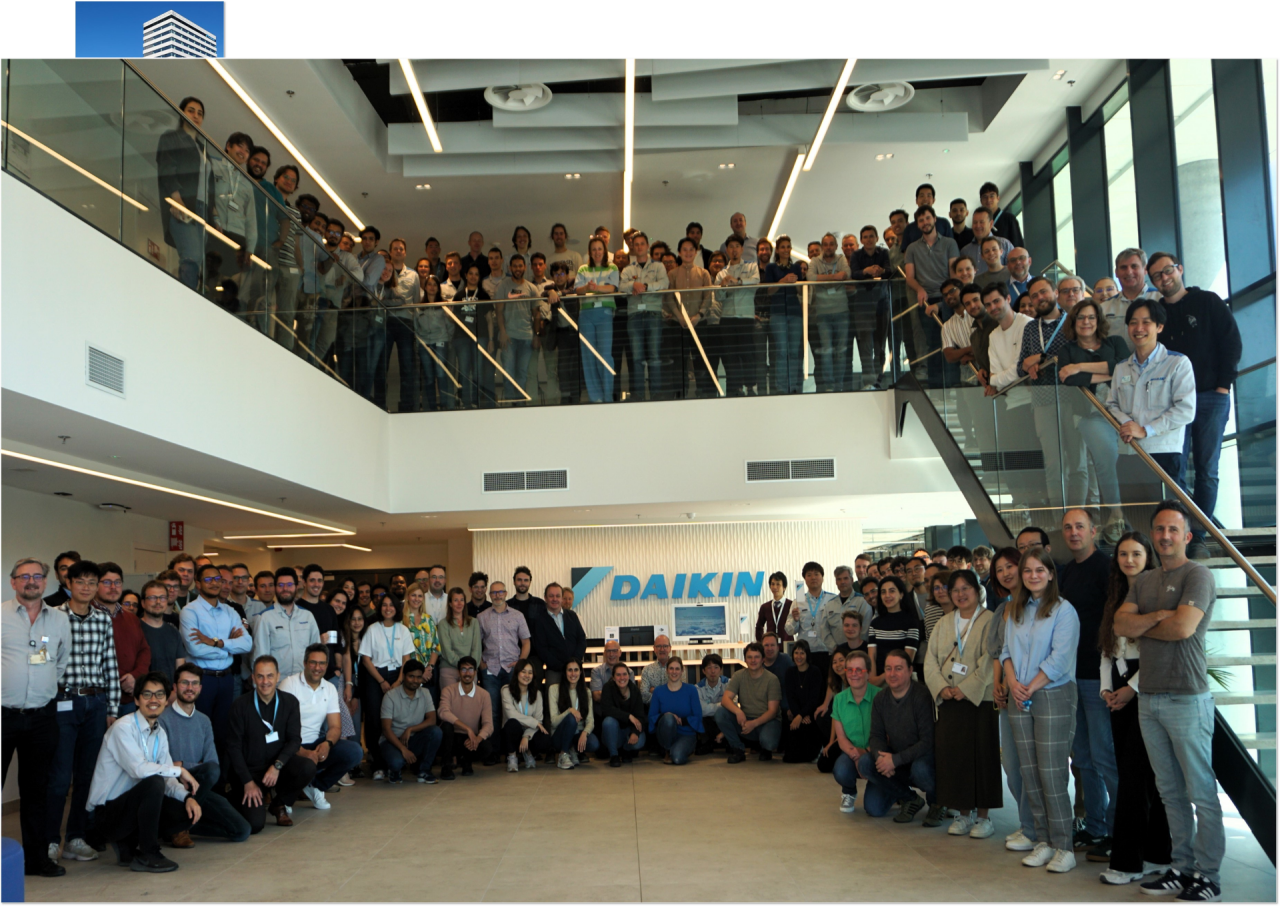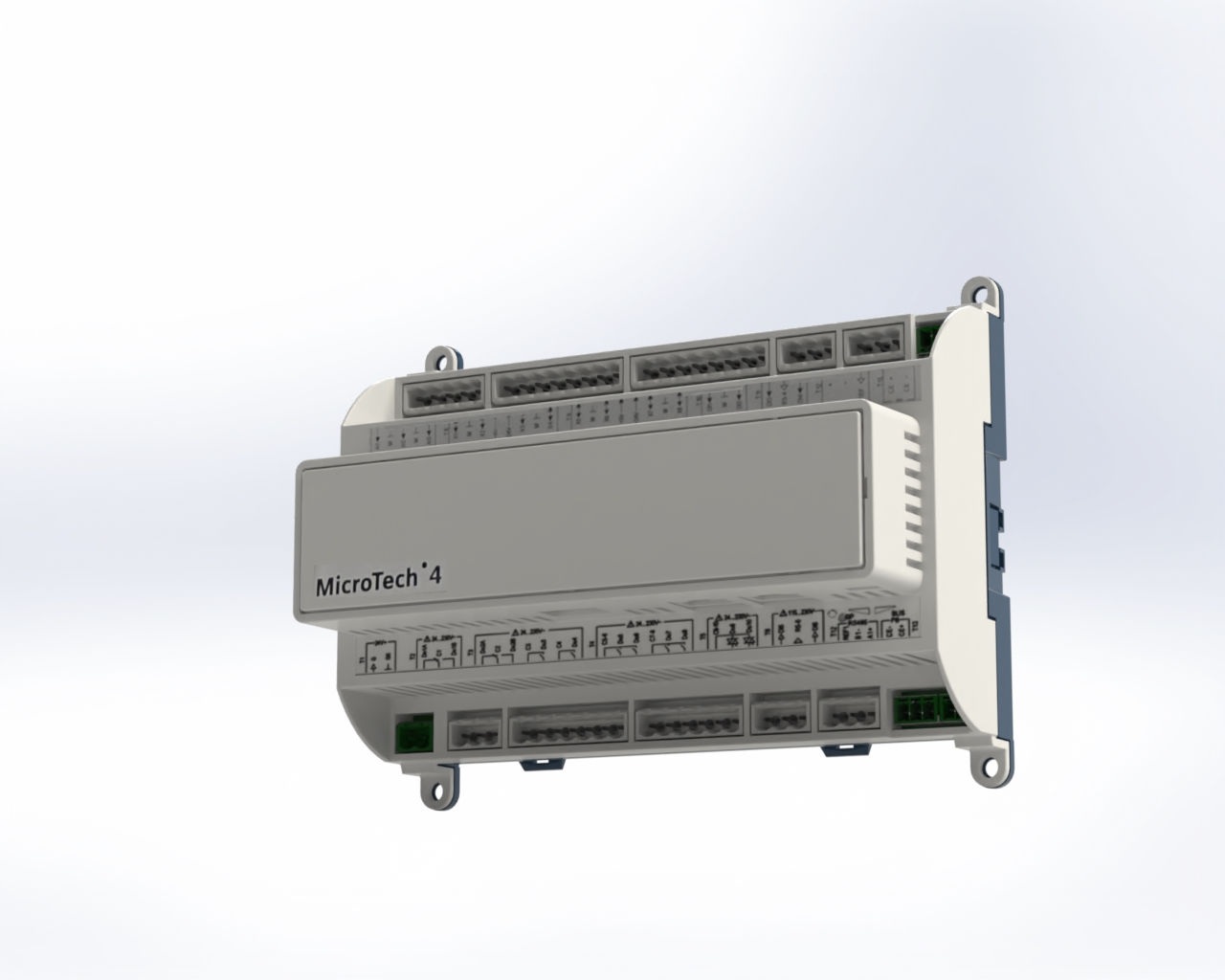
In addition to providing building users with the level of comfort they prefer, HVAC systems are also used in different industries. Pharmaceutical industrial plants, chemical production plants, refineries, distilleries, and other industrial facilities use HVAC systems for precise heating and cooling at different parts of their manufacturing process.
Reliable HVAC systems are vital for providing the strict temperature control needed throughout the production process to ensure the quality of the end-product meets the standards expected in the market. Breakdowns and downtime of the HVAC system can affect the plant’s productivity, as well as jeopardise the quality of the output from the industrial process.
What’s important when designing a HVAC system for use in industry?
Let’s take a look at the needs of a small dairy plant to see the aspects that are important to consider when designing a HVAC system for process cooling in an industrial setting. We selected this type of facility as it’s relatively small but still manufactures products for well-known brands (e.g., from the distribution chain) which require the facility to meet high quality and productivity standards.
- Reliability
Despite its small size, dairy plants can be challenging for HVAC systems because of the complexity of the industrial processes. Taking milk products as an example, milk needs to be stored at a constant low temperature (between 6°C and 10°C depending on the applicable regulatory standards) before pasteurisation to slow down the multiplication of bacteria in the milk. This preserves milk quality, extends shelf life, and ensures a better-quality end-product.
Pasteurisation of milk requires the milk entering the pasteurisation heat exchanger (HX) at approximately 5°C, being heated to over 72°C, and then cooled back to 5°C before moving to the next processing phase. This means that small dairy plants need very reliable chillers able to precisely provide the required cooling.
- Energy efficiency
The energy efficiency of the chillers has a direct impact on your operating costs and fuel consumption, so by selecting a chiller with a high energy efficiency, you can lower your costs whilst improving the sustainability of your operations.
- Load variation and capacity
It is important to consider the load variation and the capacity that the dairy requires based on its size, the process equipment it contains, and operating conditions. It is worth noting that even though food process applications usually require constant loads throughout the year, the conditions it needs to operate in can vary, for example, ambient temperature and humidity.
This means that the chiller needs to be selected to provide proper cooling capacity in the worst operating conditions for the specific climate region that the dairy is located in. Therefore, the chiller will be operating at a partial load for most of the year when the operating conditions are not extreme, which is why inverter technology can be a good selection for this type of facility.
- Monitoring
Consistent monitoring enables the dairy to implement efficiency strategies based on insights from real data and plan for preventative maintenance. This helps reduce running costs by making the HVAC system more energy efficient and reliable.
The Daikin R-32 Small Inverter Chiller
Based on the needs of the dairy, the new Daikin Inverter Chiller Series with R-32 refrigerant is the ideal choice. This air-cooled scroll compressor chiller solution can cover cooling capacities ranging from 16 kW to 90 kW and has a compact footprint regardless of the chosen unit. The cooling-only version is suitable to work in ambient temperatures ranging from -20°C to 45°C as standard, or up to 52°C with the optional high ambient kit.
Other features offered as standard are the Daikin-designed DC-Inverter Scroll compressors, high efficiency Daikin-designed DC-Inverter fans with a selectable silent mode, and an inverter pump kit with both high and low lift variants.
These components mean the Small Inverter Chiller is a full inverter series, so it is ideal for applications requiring units to operate at partial load for most of their operating time as it helps the HVAC system to deliver exactly what is needed despite the varying operating conditions. This is essential for improving the energy efficiency of the HVAC system.
The Small Inverter Chiller also offers advanced connectivity and monitoring. The smart control solutions are designed for high performance and system flexibility, allowing units to be easily sequenced (if required for improved load variation management). The Small Inverter Chiller can also communicate with any external BMS or connect to Daikin on Site, the remote monitoring and system optimization within the Daikin proprietary cloud platform which ensures full control of the units through detailed monitoring, online alarm troubleshooting, and remote control. Furthermore, it can connect to the internet via Internet of Things (IoT) for quick and easy commissioning via a dedicated mobile configuration app.





